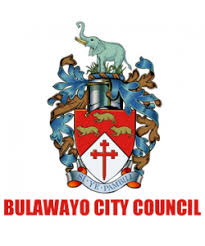Slow implementation of Constitution worries BCC

The Bulawayo City Council (BCC) has expressed displeasure at the slow pace at which the Constitution of Zimbabwe, adopted in 2013 is implemented adding proposed amendments were also premature.
A number of stakeholders including civic society organisations have also raised similar concerns in the past.
According to the latest Council minutes, during a General Purposes Committee meeting, on February 24, 2020 attended by councillors and senior Council staff, the local authority expressed concern over lack of mechanism to make sure the national charter was comprehensively implemented.
The Council report, while acknowledging that the alignment of laws was an ongoing process, indicated there were many gaps and in the implementation of the provisions of the Constitution.
“During the Constitution making process, the Ministry of Constitutional and Parliamentary Affairs oversaw the process,” said the report.
“However it is no longer in existence, instead the Constitutional Affairs department subsists as an office within the Ministry of Justice,” said the report.
“This was in contrast with what had happened in other jurisdictions that had also been through implementing new Constitutions. In Kenya, for example, an independent organ was established to monitor, facilitate, coordinate and oversee the development of the legislation and administrative procedures required to implement the Constitution.”
The Council report said Zimbabwe could imitate the move by Kenya to help provide an entry point for members of the public to track progress and take the government to implement the Constitution.
“This proposal was made during the constitution making process and was omitted, however this was an opportunity to reconsider an independent organ to safeguard the interests of the citizens. It was necessary to protect the sovereignty of the people, secure observance by all state organs of the democratic values and principles and promote Constitutionalism,” said the report.
The Constitution, for example, provides that there be creation of devolution mechanism, which seeks to enhance fairness in the sharing of the national resources and endeavours to decentralise governance structures.
“One of the consequences of the centralisation of power had been the perception of alienation among citizens, some of whom felt marginalised, neglected and discriminated against for various reasons,” the report said.
“Devolution allowed citizens to participate meaningfully in governmental decision making at the local level. There is need to establish mechanisms to ensure equitable sharing of the national resources, including land.”
BCC said some areas which needed to be properly implemented were commitment to gender equality, prohibition of discrimination on the basis of sex, gender, race, observance of the principle of separation of powers and guaranteeing good governance.





